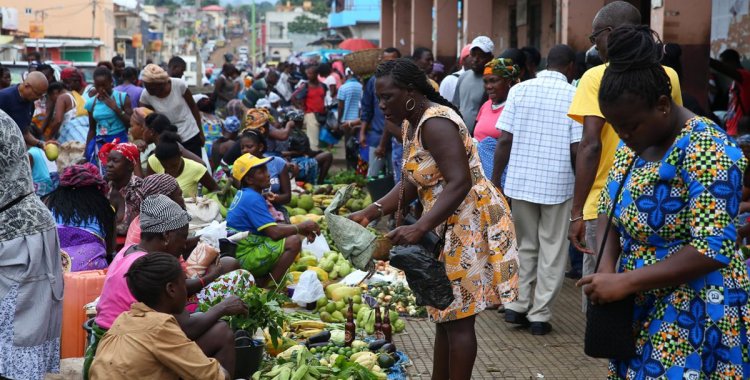Fresh, rice, oil and pasta are the most popular products in the various warehouses and commercial establishments in the capital, where the surface managers guarantee to respond to consumer demand.
The considerable presence of people, including buyers and sellers, at the Pedrinhas market, in the Terra Nova neighborhood, in the urban district of Rangel, arouses the attention of those who circulate there, in an intense movement also of vehicles that supply the warehouses.
Traders recognize that it is an abnormal flood, compared to previous days, and link the demand for basic basket goods to this Wednesday's elections, due to fears of instability after the suffrage.
Natália Francisco, manager of a warehouse in that district, told Lusa that the demand for products at her establishment increased considerably, especially on Tuesday, "because people are a little worried" about the post-election.
"I think it's because of what is being said about the elections. People are kind of worried because they don't know what will happen after the elections, so they want to increase the 'stock' of their houses", she said.
With a large number of invoices in hand and always attentive to the movements of the customers present in the warehouse, this manager noted that rice, cornmeal, oil and pasta lead customer demand.
"Yes, we have [enough quantity to meet demand]. Rice, cornmeal, oil, pasta have more output and in large quantities, people are really wanting to have a considerable 'stock' at home", she added.
Among dozens of customers at that warehouse, Valdick Oliveira rushed to the shopping area, adjacent to the Congolese Market, to "do a little shopping" because "the house reservation is low".
The civil servant pointed out, on the other hand, the need to have the essentials at home, as he is equally skeptical about what could come after Wednesday's elections.
"Today I really came to increase the 'stock' and also because of tomorrow, we don't know what will happen tomorrow [Wednesday] so I came to increase the house reserve", he stressed.
Valdick Oliveira also defended that Angolans should join the polls, considering, however, the generalized concern about post-electoral instability as legitimate.
"In my view, [the fear] is legitimate, because if you don't know after the event that will take place tomorrow [Wednesday] what comes next, then there is a need to increase the 'stock' at home" he insisted.
In that commercial area, the intense movement of people with products, carried on their heads and others in wheelbarrows, conditions the circulation of passers-by, in the same place where the saleswomen also sell products at retail.
In another commercial area, in the same area, the manager Celestina Fernando spoke of an "abnormal" demand for products, on a day that she considered as very agitated, due to the elections.
"People are worried about shopping to prevent what's going to happen and they're worried about it. Demand has multiplied, yes," she said.
The manager regretted, on the other hand, the increase in product prices, in relation to the months prior to the elections, noting that the price of a 25-kilogram bag of rice rose to 9,000 kwanzas against the previous 7,000 kwanzas.
The increase in the prices of basic food products was also noted by Mariana de Jesus Singui, who also went to one of the warehouses in that market to buy five kilos of rice for 2,500 kwanzas.
For the unemployed young woman, the increase in prices has made life even more difficult for Angolans, who live the period before the general elections with "fear of war".
"They are saying that they are going to close the warehouses, there may be a war or that people are coming to buy something, this fear is not normal", she stressed.
"But things are not really good in that country, the [kilogram of] beans was 600 kwanzas, but now it's 900 kwanzas, things are really bad. João Lourenço [current president and MPLA candidate] came to ruin our country, It's not really good," he snapped.
The large movement of people in commercial areas and informal markets is still registered in several parts of the Angolan capital.
Angola lived this Tuesday the day of reflection, aiming at the elections this Wednesday, August 24, after almost a month of electoral campaign of the eight forces competing for the suffrage, seven parties and a coalition of parties.







